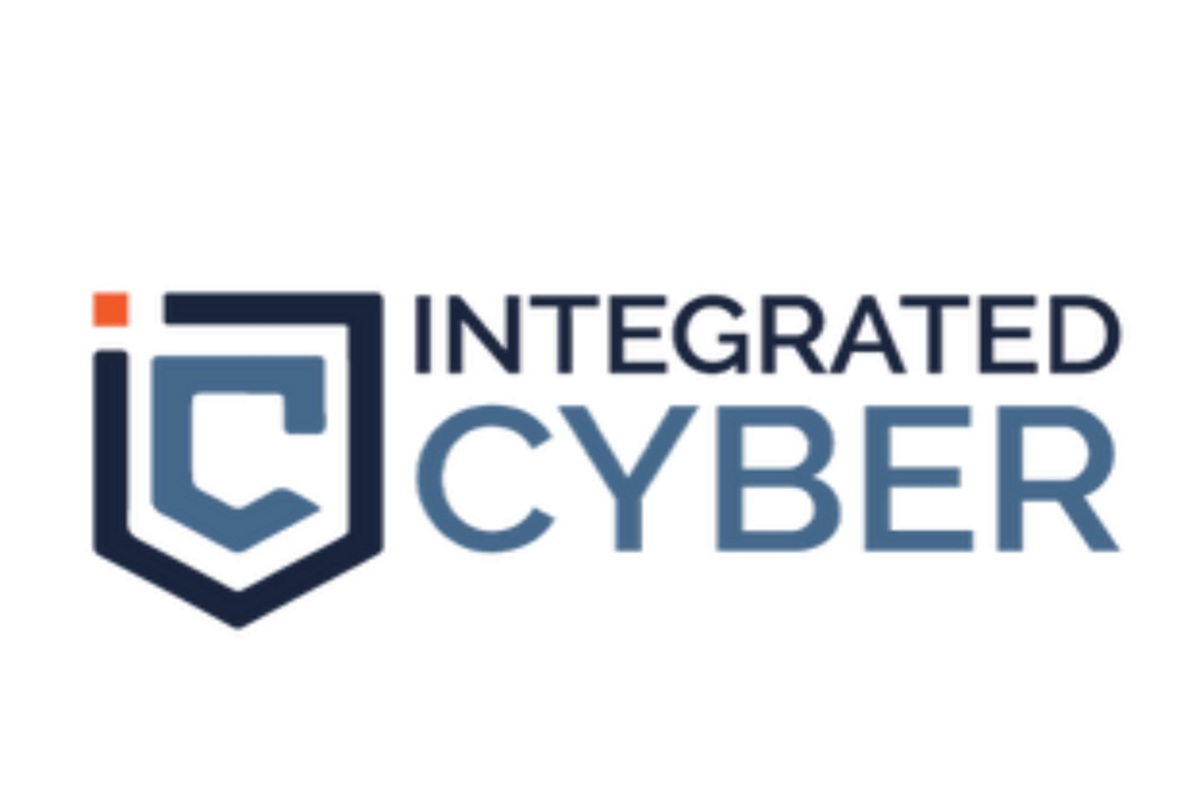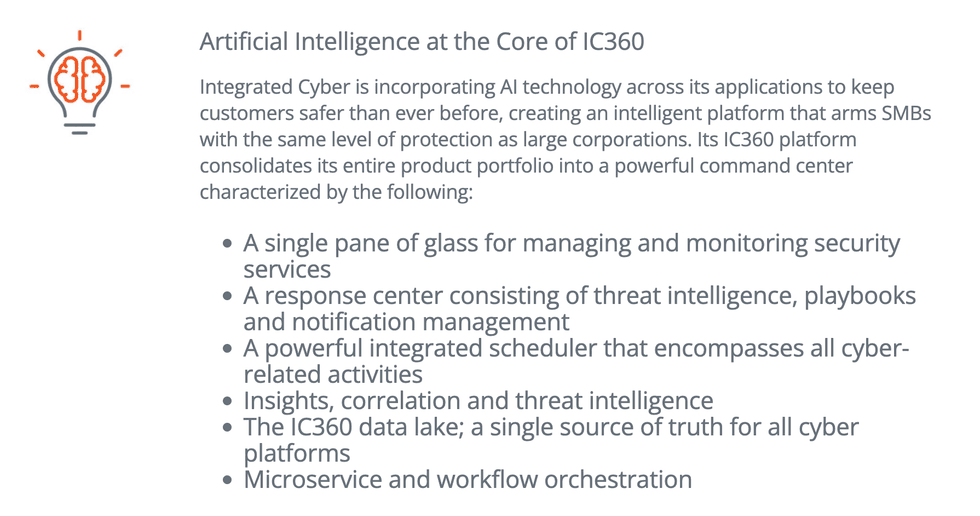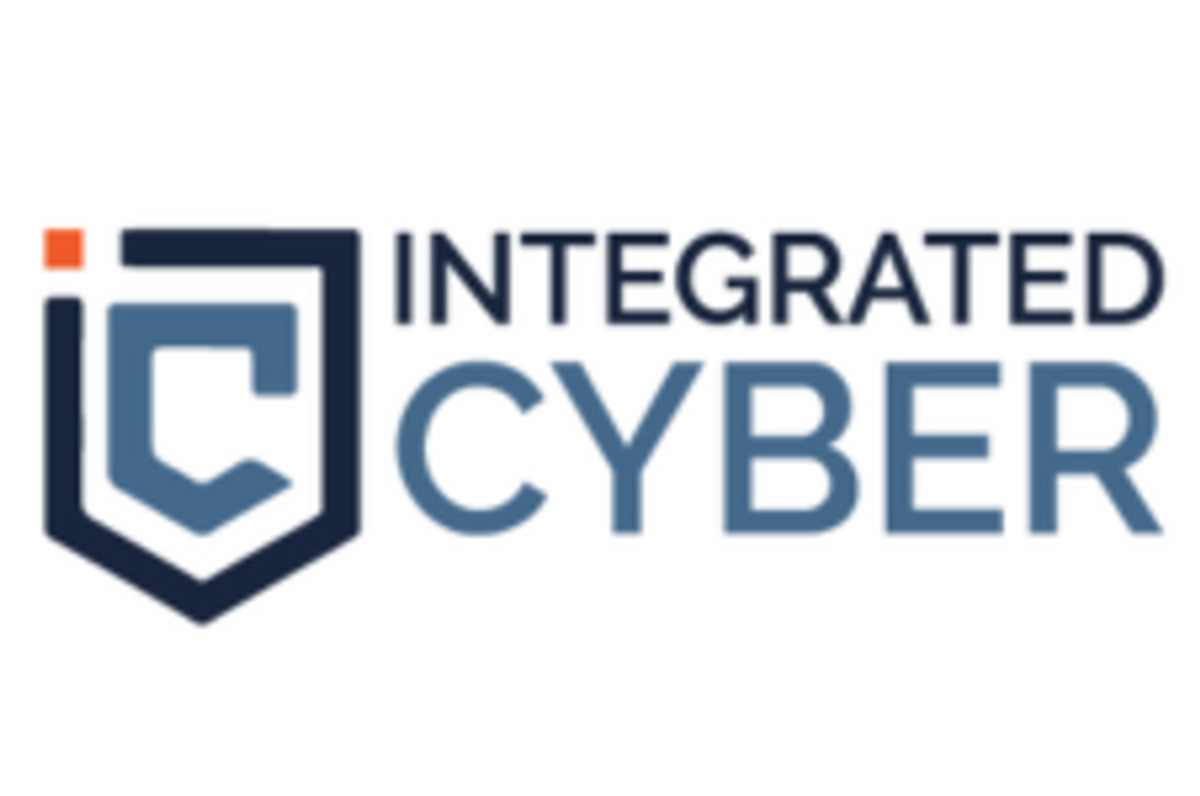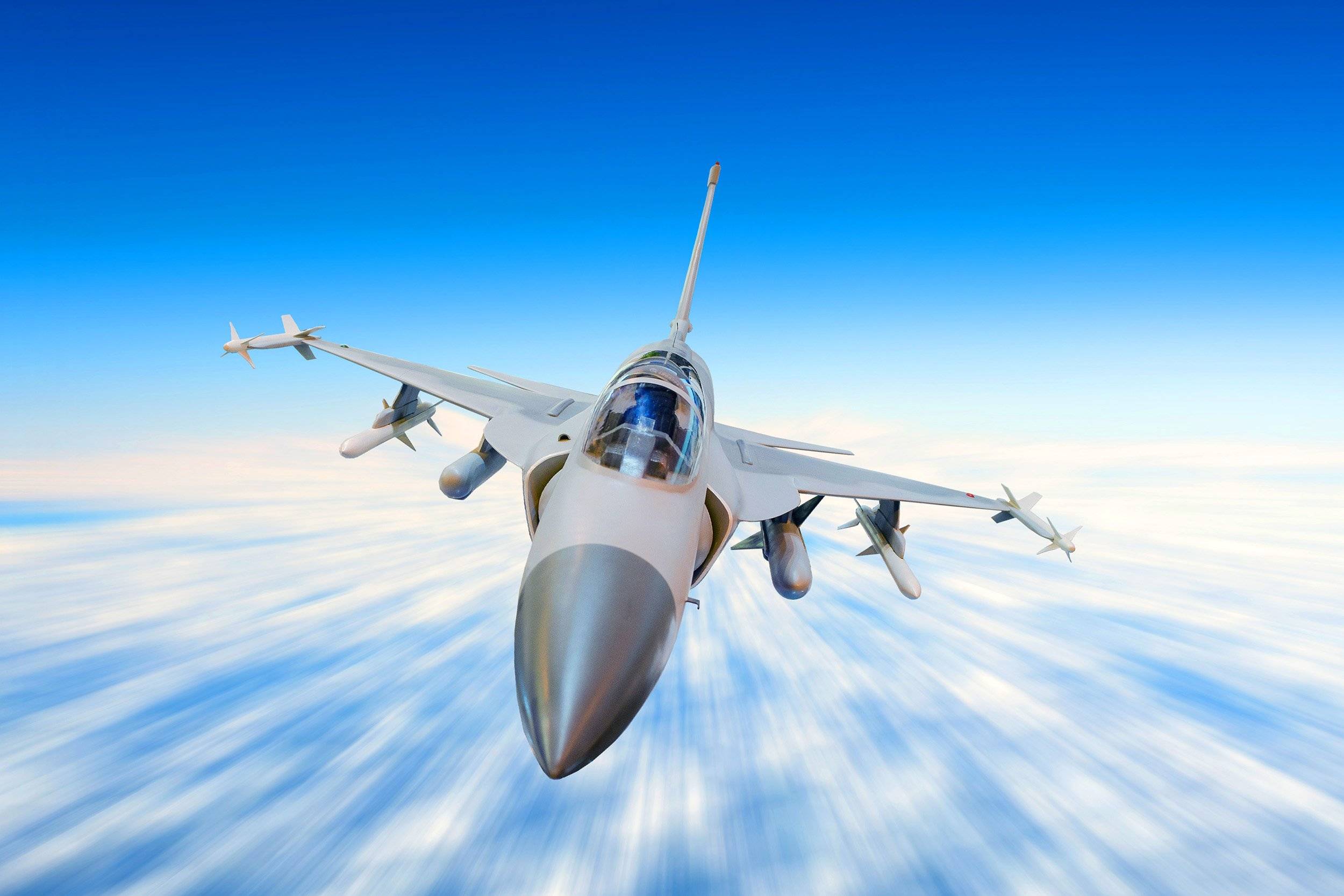
October 11, 2023
Integrated Cyber Solutions (CSE:ICS) offers a comprehensive suite of tools designed to protect small and medium businesses from threat actors. The company assembled a team that brings together strategic and tactical experience with the goal of making security more actionable and understandable to provide vulnerability assessments, pen-testing, cyber training, MDR, and managed services,
Integrated Cyber focuses on the human side of security paying much attention to processes and education as it does on security tooling. This helps businesses that lack the resources or personnel not only protect themselves from threat actors, but also gain a better understanding of their security posture in the process.

Integrated Cyber’s portfolio is focused on three vital security pillars, tied together with artificial intelligence.
Artificial intelligence has fundamentally changed the nature of cybersecurity. It allows organizations to provide personalized security training, gain insights from massive threat intelligence datasets and detect and respond to threats automatically. Unfortunately, most businesses lack the expertise to incorporate these tools.
Why Invest in Integrated Cyber (CSE: ICS)?
1. High Growth Potential
- Integrated IT management ecosystem spanning both NOC and SOC.
- Rich opportunities for consulting services, adjacent products and training.
- A dual plan for growth that combines direct sales and a partner ecosystem.
2. Promising Portfolio
- Resources and market differentiation focused around three core pillars.
- Continuously-evolving services to future-proof investment capital.
- Represents and integrates best-in-class capabilities from the top cybersecurity platforms.
3. Well-Defined Roadmap
- $5 million in capital reserve for acquisitions with the capacity for further expansion.
- Acquisition of synergistic companies to drive rapid expansion — currently assessing 6 targets.
- Positioned to be acquired by a major IT services company, cyber product company or MSSP as an exit strategy.
4. Industry Expertise
- Extensive knowledge of manufacturing, energy and finance.
- Also have customers in finance with interest from higher education.
- Frequently help protect critical, high-risk infrastructure.
5. Focused Sales Strategy
- Managed services sales model is built on consistent recurring revenue.
- Average margin of 60 percent per customer.
- Comprehensive portfolio with multiple upsell and cross-sell opportunities.
- A management team with decades of collective experience.
- An advisory board consisting of the CIOs of several major corporations.
- Expertise includes financial management, IT, telecommunications, cybersecurity, data storage and managed services.
- Predictable revenue stream to consist of 80 percent recurring revenue.
- Low, fixed and high-variable cost structure
- Revenue forecast of $1 million in 2023 and $22 million by 2027.
This Integrated Cyber Solutions profile is part of a paid investor education campaign.*
Click here to connect with Integrated Cyber Solutions (CSE:ICS) to receive an Investor Presentation
ICS:CC
The Conversation (0)
05 February 2024
Integrated Cyber Solutions
The Untapped Billion-Dollar Potential of Cybersecurity for SMBs
The Untapped Billion-Dollar Potential of Cybersecurity for SMBs Keep Reading...
16 July 2025
Biggest Canadian Defense Contractors and ETFs
Governments and militaries around the world are beefing up their defense budgets as geopolitical and trade tensions mount. Unsurprisingly, aerospace and defense stocks are looking more attractive to investors. The aerospace and defense industry comprises covers a large array of products,... Keep Reading...
15 July 2025
Biggest US Defense Contractors and ETFs
Geopolitical tensions are rising in several regions of the world, and governments are expected to increase their defense spending in the years ahead. This has investors looking to aerospace and defense stocks.The entrenched Russia-Ukraine war, widespread conflict in the Middle East, military... Keep Reading...
28 April 2025
4 Biggest Cybersecurity ETFs for Investors
As data breaches and cyberattacks rise, cybersecurity exchange-traded funds (ETFs) are gaining traction. The term cybersecurity originated in 1989, and today is defined as the measures taken to protect a computer or computer system against unauthorized access or cyberattack threats. These... Keep Reading...
05 February 2025
ASX Cybersecurity Stocks: 5 Biggest Companies
Cybersecurity has become a global concern, and demand for technological security is increasing in tandem.In Australia, the cybersecurity market is expected to grow from an estimated AU$8.4 billion in 2025 to a projected AU$19.57 billion by 2030, a compound annual growth rate of 18.44... Keep Reading...
10 January 2025
Cybersecurity Stocks: 10 Biggest Companies
Cybercrime is a growing concern, and it’s estimated that the annual cost of fighting cyber crime will reach US$10.5 trillion by 2025. Cybersecurity companies are working to address the challenge. As investor interest in this potentially lucrative sector increases, the Investing News Network... Keep Reading...
08 January 2025
Cybersecurity Market Forecast: Top Trends for Cybersecurity in 2025
In today’s digital world, cybersecurity is not just important — it's essential.An alarming rise in cyberattacks is fueling demand for cybersecurity solutions; 2024 brought data breaches targeting large corporations such as AT&T (NYSE:T), Fidelity, Dell (NYSE:DELL) and Snowflake (NYSE:SNOW), and... Keep Reading...
Latest News
Interactive Chart
Latest Press Releases
Obonga Project: Wishbone VMS Update
27 February
Related News
TOP STOCKS
American Battery4.030.24
Aion Therapeutic0.10-0.01
Cybin Corp2.140.00





